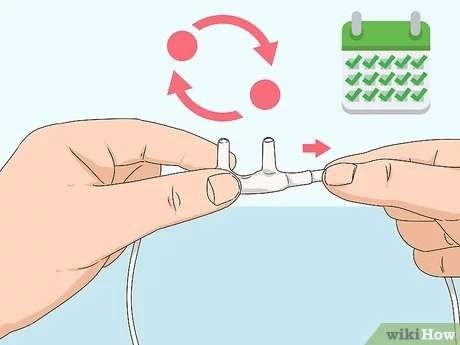A nurse is reinforcing home safety instructions with the guardian of an 18-month- old toddler.
Which of the following responses by the guardian indicates an understanding of the teaching?
“I will turn all pot handles toward the back of the stove.”
“I will place my child’s car seat forward-facing in the backseat.”
“I will set the temperature of the water heater to 130 degrees.”
“I will place my child in a drop-side crib for napping.”
The Correct Answer is A
“I will turn all pot handles toward the back of the stove.” This indicates that the guardian understands how to prevent the toddler from pulling a pot off the stove and getting burned.
Choice B is wrong because a child’s car seat should be rear-facing until the child is at least 2 years old or reaches the maximum height and weight for the seat.
Choice C is wrong because the temperature of the water heater should be set to no higher than 120 degrees to prevent scalding injuries.
Choice D is wrong because drop-side cribs are banned in the United States due to the risk of entrapment and suffocation.
Nursing Test Bank
Naxlex Comprehensive Predictor Exams
Related Questions
Correct Answer is C
Explanation
Clean the cannula prongs daily.

This is because the nasal cannula can become contaminated with bacteria and mucus, which can cause infection and irritation of the nasal mucosa. Cleaning the cannula prongs daily with soap and water can prevent these complications.
Choice A is wrong because humidifiers can help moisten the dry oxygen and prevent nasal dryness and bleeding. Humidifiers should be used for oxygen flow rates higher than 4 L/min.
Choice B is wrong because the cannula prongs should be positioned curving downward in the nose, not upward. This allows for better alignment with the natural direction of airflow and reduces the risk of dislodgement.
Choice D is wrong because keeping the oxygen tubing off the floor is not a specific action for nasal cannula use. It is a general safety measure to prevent tripping and contamination of the tubing.
Correct Answer is ["A","C"]
Explanation
Choice A reason:
The Bradley method teaches the labor partner how to coach and support the mother during labor. This is true because the Bradley method emphasizes the role of the partner as an active participant and a skilled coach who can help the mother relax, breathe, and cope with pain during labor. The partner also serves as an advocate for the mother's preferences and needs in the hospital setting.
Choice B reason:
The Bradley method teaches the mother and partner about the variety of methods to control pain. This is false because the Bradley method does not teach a variety of methods to control pain, but rather focuses on relaxation as the main way to reduce pain during labor. The Bradley method also discourages the use of medication or medical interventions for pain relief, unless they are medically necessary.
Choice C reason:
The Bradley method prepares the woman to deliver without medical interventions and medications. This is true because the Bradley method aims to help women have an unmedicated birth with minimal medical intervention. The Bradley method teaches women how to avoid unnecessary interventions and how to cope with natural labor by using relaxation, breathing, nutrition, and exercise. The Bradley method also educates women on how to reduce their risk of having a C-section and what to do if it becomes medically necessary.
Choice D reason:
The Bradley method focuses on muscle control because muscle tension increases the pain of labor. This is false because the Bradley method does not focus on muscle control, but rather on deep and complete relaxation during labor. The Bradley method believes that muscle tension interferes with the natural process of labor and increases pain, so it teaches women how to relax their muscles and let their bodies do the work.
Choice E reason:
The Bradley method is the most widely used method in the US. This is false because the Bradley method is not the most widely used method in the US, but rather one of several options for natural childbirth. According to a 2017 survey by Listening to Mothers, only 4% of women reported using the Bradley method for their most recent birth, compared to 48% who used Lamaze, 14% who used hypnobirthing, and 9% who used other methods.
Whether you are a student looking to ace your exams or a practicing nurse seeking to enhance your expertise , our nursing education contents will empower you with the confidence and competence to make a difference in the lives of patients and become a respected leader in the healthcare field.
Visit Naxlex, invest in your future and unlock endless possibilities with our unparalleled nursing education contents today
Report Wrong Answer on the Current Question
Do you disagree with the answer? If yes, what is your expected answer? Explain.
Kindly be descriptive with the issue you are facing.
